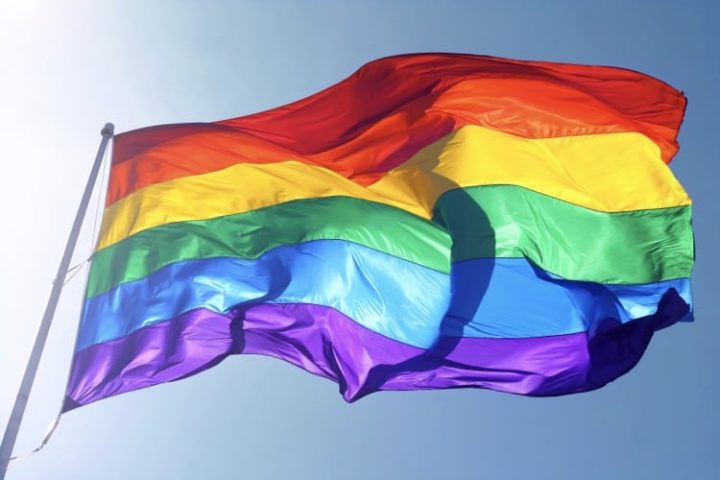
Russia’s Federal Financial Monitoring Service (Rosfinmonitoring) has widened its classification of persons and organizations perceived to be involved in extremist activities or terrorism to include “the international LGBT social movement and its structural units.” The updated list can be seen on the agency’s website.
The move follows a ruling by the country’s Supreme Court last November that maintained the Ministry of Justice’s recognition of the “international LGBT movement” as extremist. Judges also recognized the structural divisions of the LGBT movement as fitting the same description and outlawed them.
Earlier this week, a court ordered the arrest of an administrator and the art director of a gay bar in the city of Orenburg, after they were charged with breaching a ban on LGBT “propaganda.”
Based on the law, banks have to freeze the funds of persons included on the list and suspend services to them. However, critics have argued that there is no specific international LGBT movement, and that for that reason the wording is difficult to interpret.
Rosfinmonitoring’s list includes over 14,000 people and entities designated as extremists and terrorists. They range from al-Qaeda, ISIS, and the Taliban to Ukraine’s neo-Nazi Azov Battalion and the movement of late Russian opposition figure Alexei Navalny.
According to Interfax sources, the new anti-LGBT law “does not affect the right of citizens to privacy and will not entail any negative legal consequences.” The restrictions are linked to the need to comply with the ban on LGBT propaganda and advertising and generating interest and involvement in the LGBT movement, the outlet said.
In 2022, Russia expanded an existing ban on “LGBT propaganda” to minors by banning it altogether. State Duma Speaker Vyacheslav Volodin said at the time that the prohibition would shield “our children and the future of the country from the darkness spread by the US and European states.”
President Vladimir Putin clarified last month that the authorities do not have issues with what members of the community do in their personal lives, as long as they “don’t flaunt it” in public and do not involve children. He has previously spoken out against the promotion of “non traditional sexual relations” as part of the drive to promote “family values” that began during his third presidential term in the early 2010s.
Many observers in Russia have associated the rise of the LGBT movement to the drop in birth rates across Europe over the past decade.
Across the Atlantic, Bloomberg reported that American embassies around the world will not be able to fly the rainbow, progress, or Black Lives Matter banners this summer. The White House agreed to the prohibition to get a $1.2 trillion spending bill through Congress.
The bill, passed on the morning of March 22, keeps the U.S. government open through September 30, the end of the 2024 fiscal year.
The spending deal has been heavily slammed by some Republican legislators, who argued that it funds all of the ruling Democrats’ priorities and removes any policy leverage from the House of Representatives.
House Speaker Mike Johnson, a Louisiana Republican, has presented the flag amendment as a major victory, while the Democrats have used it to accuse the GOP of being mean and “homophobic.”
“[The] Republican Party loves nothing more than to demagogue at the expense of LGBTQ Americans,” Democratic Congressman Ritchie Torres of New York said on March 22. “I support funding the federal government. So we’re held hostage by the extremism of the Republican Party.”
One Democrat familiar with the deal told Bloomberg that the ban applies to any banners other than the national flag, exempts the POW-MIA banners traditionally flown to commemorate missing prisoners from the Vietnam War, and does not apply to “embassy officials’ personal use.” It would also expire on September 30, along with the spending bill.
Washington’s embrace of the pride flag dates back to the first term of leftist leader Barack Obama and Hillary Clinton’s tenure at the State Department (2009-2013). The Trump administration (2017-2021) reserved the official flagpoles for Old Glory alone, but did not stop embassies from flying the rainbow banner as a provocation — in Moscow in June 2020, for example.
Since 2021, however, the State Department has promoted both the pride flag and the Black Lives Matter banner, both at embassies abroad and at its Washington headquarters.
In May 2021, the Republicans proposed the “Stars and Stripes Act” that would ban any other flags from official embassy flagpoles. The following month, the U.S. embassy to the Vatican hung a massive pride flag on the outside of its building and boasted about it on social media, insisting that “LGBTQI+ rights are human rights.”
Meanwhile, a recent poll by the Public Religion Research Institute (PRRI) released on March 12 indicated that U.S. public support for pro-LGBT laws has declined for the first time since 2015, despite a rise in the number of Americans identifying as something other than heterosexual.
The survey revealed that 67 percent of U.S. adults back same-sex “marriage rights,” down from 69 percent in 2022. At the same time, support for protecting LGBT Americans against housing and employment discrimination fell to 76 percent from 80 percent, and opposition to allowing businesses to refuse service based on religious beliefs slid to 60 percent from 65 percent.
Although Americans of all political stripes and most religious faiths continue to largely favor LGBT laws, the drop in support could be a “warning sign,” PRRI CEO Melissa Deckman told The Guardian. “This is really the first time we’ve seen a decline in support,” she said. The poll “reminds us that you can’t expect hard-fought rights for some Americans to continue going up in perpetuity,” she added.
Domestically, conservative politicians have countered LGBT activism and sex-change procedures for minors. Nineteen Republican-controlled states have enacted restrictions on puberty blockers and sex-change surgeries. Several states have tried to ban drag performances for children, and local school districts in such states as Texas, Tennessee, and Florida have removed LGBT-themed books from their libraries.



